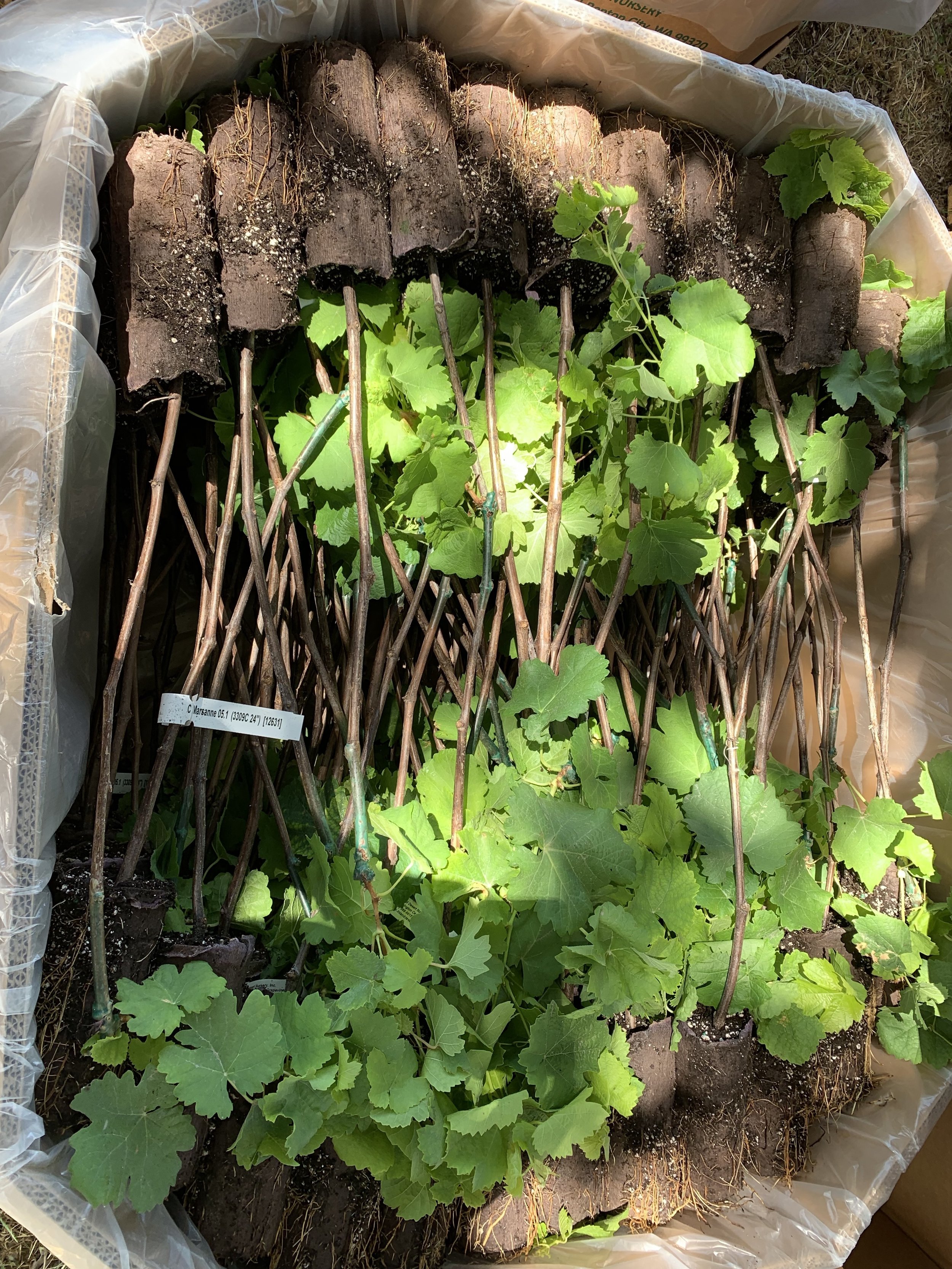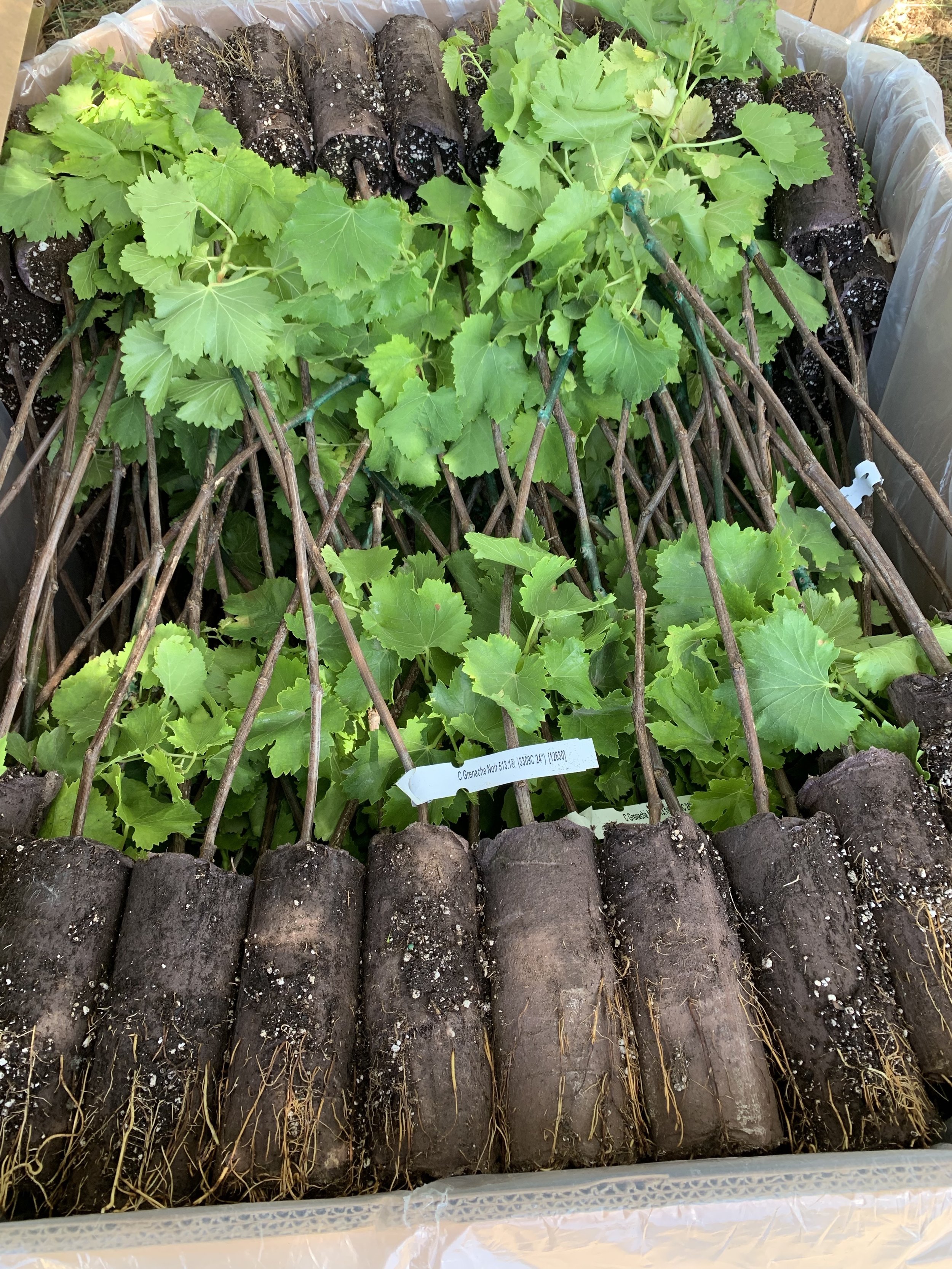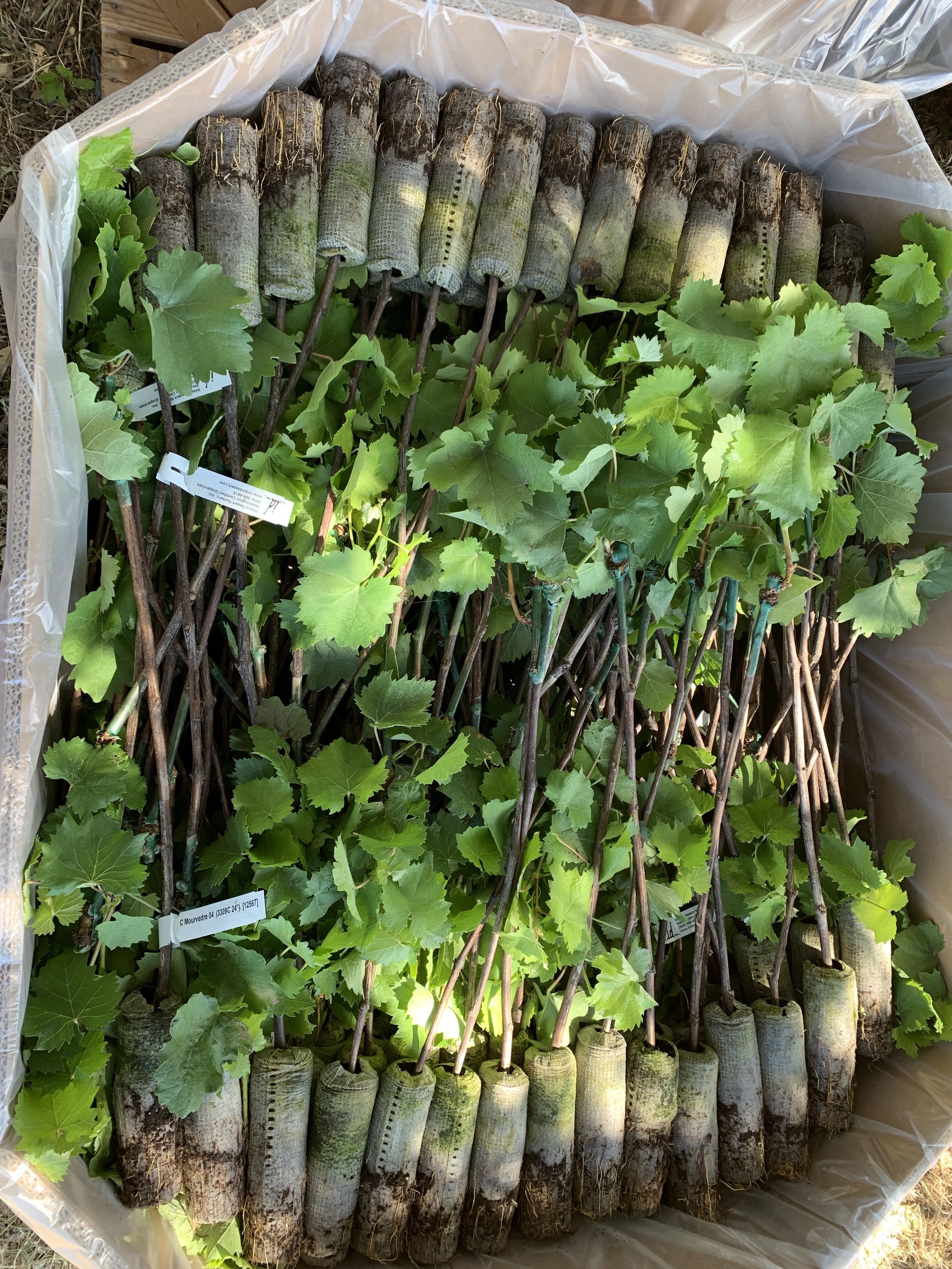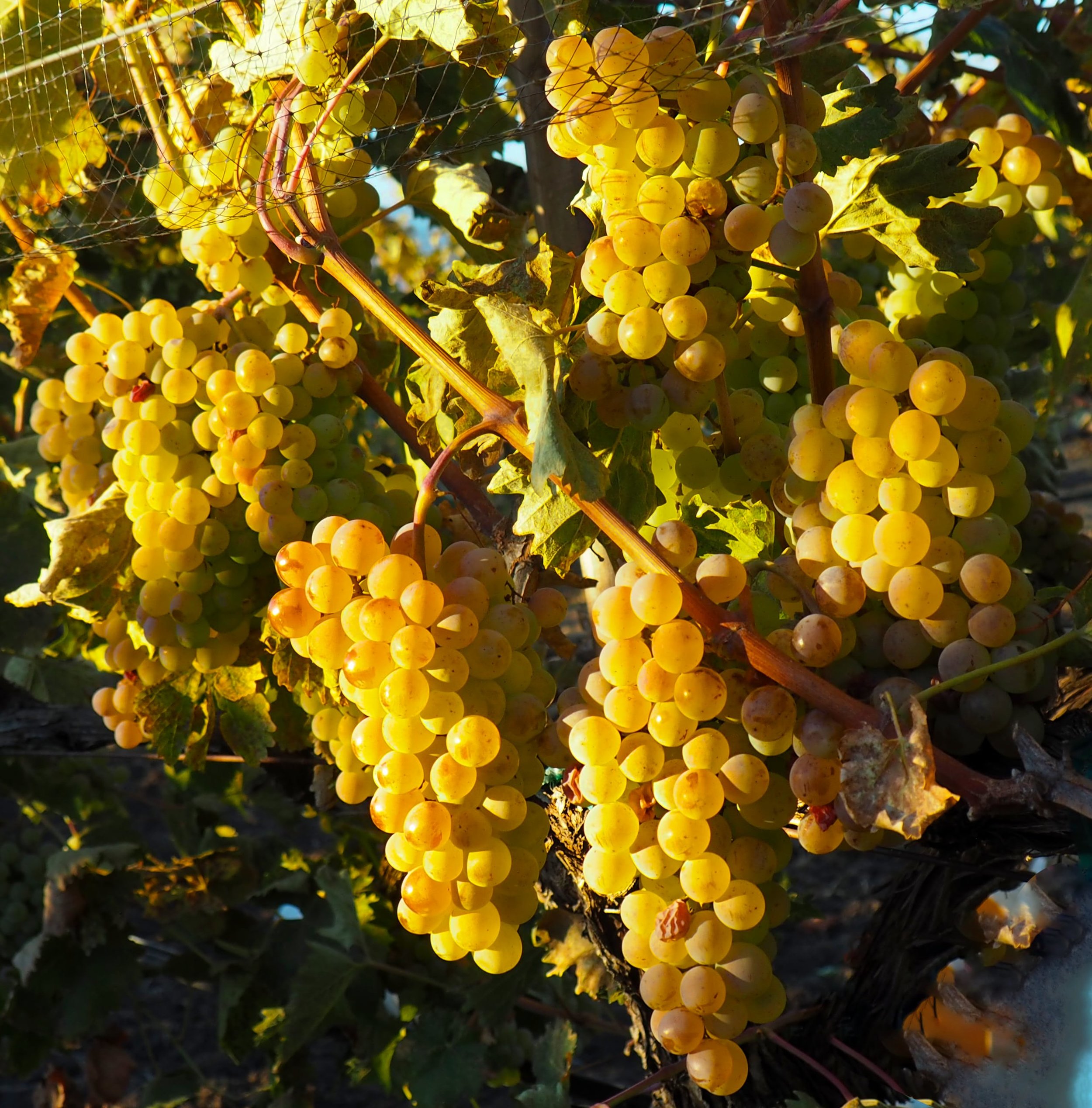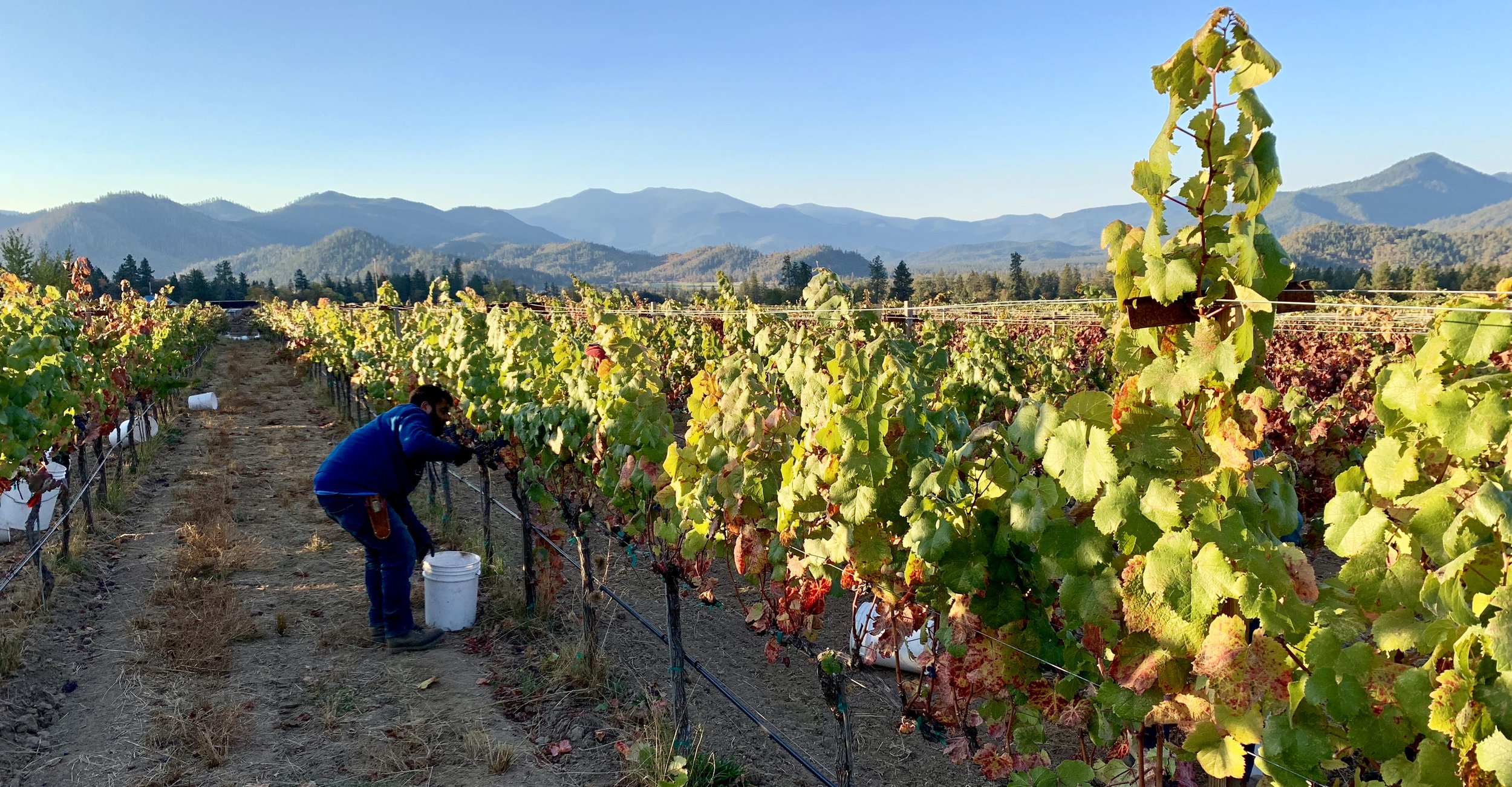Certifiable
Cynics often claim wineries get certifications as a marketing ploy. They’re right, but not in the way they think. We are selling something — an idea. That idea is regenerative agriculture. Those that think it’s a slick wine marketing concept need to have a conversation with our accountants.
That’s not to say that biodynamics and regenerative agriculture can’t be profitable, indeed they can be, should be, and better be. As they say, you can’t farm green if you’re in the red. However, you may need to be patient for the profit — it’s worth the wait.
There are many reasons to get organic certifications — all of them good for the planet. You need a framework, a foundation to get started on a complex project based on long-term goals. Rigorous certifications like Demeter Biodynamic® and Regenerative Organic Certified™ (ROC) give a farm an outline of how to move forward. The process sets goals and milestones that help define the work that needs to be done and how to do it. This is critical when you are held to a high standard that demands you progress and improve.
There is no endpoint in the process — you never reach agricultural nirvana. Even if you improve every year, you’re only taking small steps forward for the next generation. There is no finish line, this is a race where the leaders are the ones not moving backward. Continual, gradual improvement is the mission. Building an additional one-percent organic matter in our soil may not sound like a lot to you, but for us, it’s a cause for celebration.
The certification process is a time of introspection and planning. We thoroughly reviewed what we accomplished and discussed what worked and where we fell short. We then plan out strategies for the next season and beyond. By the time the inspector arrives, we are prepared in a way you can never be without a formal process and demanding standards that must be achieved. The challenge is always planning how you will improve and move forward. Each year we add additional layers to our practice.
Your first certification, while an achievement, is only the beginning. It means you have finally arrived at the starting line. Ultimately, you have to build on the outline that the certifications have developed and discover the ideal framework for your farm. While the overall concepts of regenerative agriculture are the same everywhere, you need to sculpt them for your farm — an art that takes years, even generations, to develop fully.
There’s a lot of greenwashing out there. Many “sustainable” certifications sound good on paper but still allow far too many poisons and shortcuts in the field and cellar. While many sustainable certifications are focused on the needs and problems of the producer, Demeter and ROC are concentrated on providing the consumer with a logo on a label that can reliably mean something to them. While I cannot doubt the best intentions of most involved in the many sustainable certifications, their programs fall short of what is needed to save our planet and have been co-opted by big agriculture. These greenwashed logos on labels dilute the meaning of all similar logos on wine labels and only confuse the consumer — which is often their intention. Why achieve a more demanding certification when you can slap a sustainable certificate on your brand without giving up Round-Up and so many other dangerous applications in your vineyard?
Every major grocery chain features organic vegetables, but those sections are dominated by big agriculture, and big organic ag is often not regenerative agriculture. This dilution of the term organic combined with corporate greenwashing of the term sustainable makes more meaningful certifications a necessity.
There are many uncertified, perfectly legitimate practitioners of regenerative agriculture who are just as dedicated to that vision as we are, but by not getting certified and putting those logos on their labels, they are not pushing the movement forward. Yes, they are improving their soils, and capturing carbon, and touching all the bases except one — evangelicalism. Our job is not to change just our farm, but to change all farms.
Putting your certifications on the label is a means of communication, and any brand messaging can be construed as marketing. But the Demeter and ROC logos are essential to communicate to consumers that are devoted to supporting producers who are committed to both the environment producing fruit, vegetables, and livestock that meets both their standards of quality and integrity. Connecting with those customers is an essential element for those that practice regenerative agriculture. With no margin, there is no mission. There are customers who share our values and want to support them. It is our job to connect with them and certification logos clearly carry our message and mission to them. Those consumers consider that a service, not a marketing hack.
Wine has advantages as we have labels to display logos and produce products that can sit on a shelf for extended periods, an advantage not open to many biodynamic farmers. Shipping perishables is challenging for small farmers. This puts winegrowers in a unique position to promote the idea of certifications beyond organic. Telling the story of how we farm is a responsibility, communicating to customers about why they should buy regeneratively farmed products is how we build demand for all ROC and Demeter products — and that’s a sure way to convince more farmers and retailers to change their ways.
Regenerative agriculture is not just about your farm — it’s about all farms.















